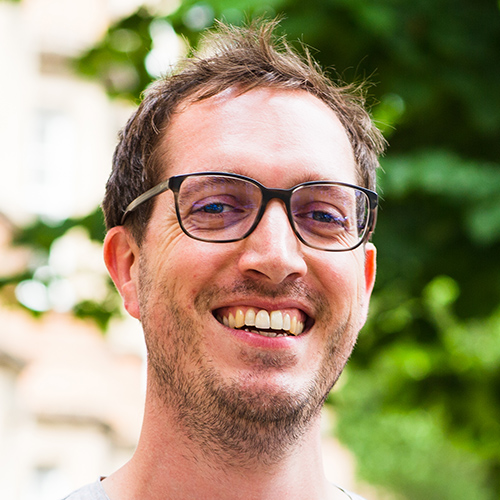If you combine a rough understanding of genetics with an Instagram-influenced, fad-dieting, Strava-tracking, symptom-googling, on-demand doctor-calling, vitamin-taking, allergen-averse society… what do you get?
Health anxiety.
Technology has allowed us to ‘disrupt’ many industries, and now our health is the next target. The illusion of mastering our health — ‘eternal life’ — is the same holy grail as always. Medical start-ups now offer DIY home blood tests, allowing you to check for deficiencies and to ensure you are in peak physical condition. Some companies now provide insights into your genetic make-up. Purely for interest, you can discover your ancestry by region (my wife is a delightful soup of Iberian, African, European and Asian, whereas I myself am a bland porridge mostly consisting of Northern Europe).
Amazingly, these companies also offer to check your genes for known faults and defects, and to inform you of impending issues such as early heart failure, or a proclivity to certain types of cancers, strokes and congenital conditions. I find myself wondering, why on earth would anyone want to know this about themselves?
With a little knowledge, we can tend to feel as though we can fix any physical problem if we eat the right foods, meditate enough or go to the right specialist. After all, we’re resurrecting mammoths from extinction (maybe), so fixing up our bodies should be a cinch. But the troubling fact that underlies our anxious desire to be well, strong and healthy, is that we cannot, ultimately, control our fate. And medicine, unfortunately, can’t fix everything.
As a teenager, I can remember feeling invincible, but as I grew older this took a severe knock through a combination of events: seeing a friend die in front of my eyes, and observing increasing health scares hitting my friends around me. Shortly after turning twenty it was my turn. I can vividly remember the day I called my dad, standing in the middle of my university campus as I informed him through tears that my worst fear had come true: I had just been told I had cancer.
In the 1970s if you were diagnosed with testicular cancer, the outlook was pretty bleak, but thanks mostly to my own cancer specialist, a professor who reformed the treatment of this particular cancer in the UK, the mortality rate has since dropped by 85%.
I count myself hashtag blessed to have had rapid access to surgery and doctors that I believe saved my life in my twenties from the big C that would potentially have killed practically anyone who had it a hundred years ago.
I’ve heard it said that you don’t really understand cancer until you’ve undergone the harshest treatments: that of chemo and radiotherapy. I understand the heart behind the statement, but it rests on the idea that physical suffering is the worst thing there is. I think that the majority of the battle for me was mental, and that doesn’t mean I wasn’t ill. Both before my surgery and as I recovered, I became filled with mental exhaustion and confusion, existential disappointment, and most embarrassingly, grieving for myself, for the life that I felt was being taken away from me, when I had just got started. As a Christian, I honestly felt let down by God.
If you’ve never had a serious health scare, you can consider yourself fortunate. Perhaps you even ascribe your good health to positive thinking, or a well-balanced diet and active lifestyle. Regardless, there is something about the threat of death’s cold grip approaching sooner than expected that makes you keenly consider matters that are inevitably beyond your control. Even if we are gifted additional time by medical intervention—as I was—what are the implications for how we see our own lives? Do we just pick ourselves up and brush it off?
I’m not suggesting that we should continuously live in a sense of morbid dread. That’s no fun for anyone. But nor should we have an expectation that our life will continue forever, or even that our output in life matters to any greater degree than anyone else’s. Some of us just happen to get longer innings, but the game has to end for everyone at some point.
No one knows how they will react when their time comes. We can fantasise about (and sometimes judge others for not) being brave and strong through a health battle, only to crumble when we are first given the news.
With over ten years all clear now, I’m just beginning to see the impact that the illness has had on my life.
Though it was a painful journey and not one I would wish on anyone, I believe that a brush with death has helped me to come to terms with my mortal existence.
Most importantly I found I had hope in the tangible heaven and new earth that is written about in The Bible – not clouds and harps, but a real solution where God will wipe away all our tears and our suffering will come to an end.
Our attitude towards death reveals our desire for control. Perhaps you believe you are destined to become nothing more than worm fodder when your mortal coil breathes its last. If so, it is understandable that you will desperately try to prolong your life now to avoid that rather unattractive fate. But as soon as a health scare like the Big C rears its ugly head, you realise very quickly that you can’t do much to control your existence on this earth.
God offers us a vision of something glorious after death—something that we can actually look forward to. It makes death a lot less fearful, but it also gives you peace in the here and now because you know that your suffering won’t last forever, and something much better awaits you. It may have taken me ten years, but I am certain now that God offers us life beyond anxiety.



